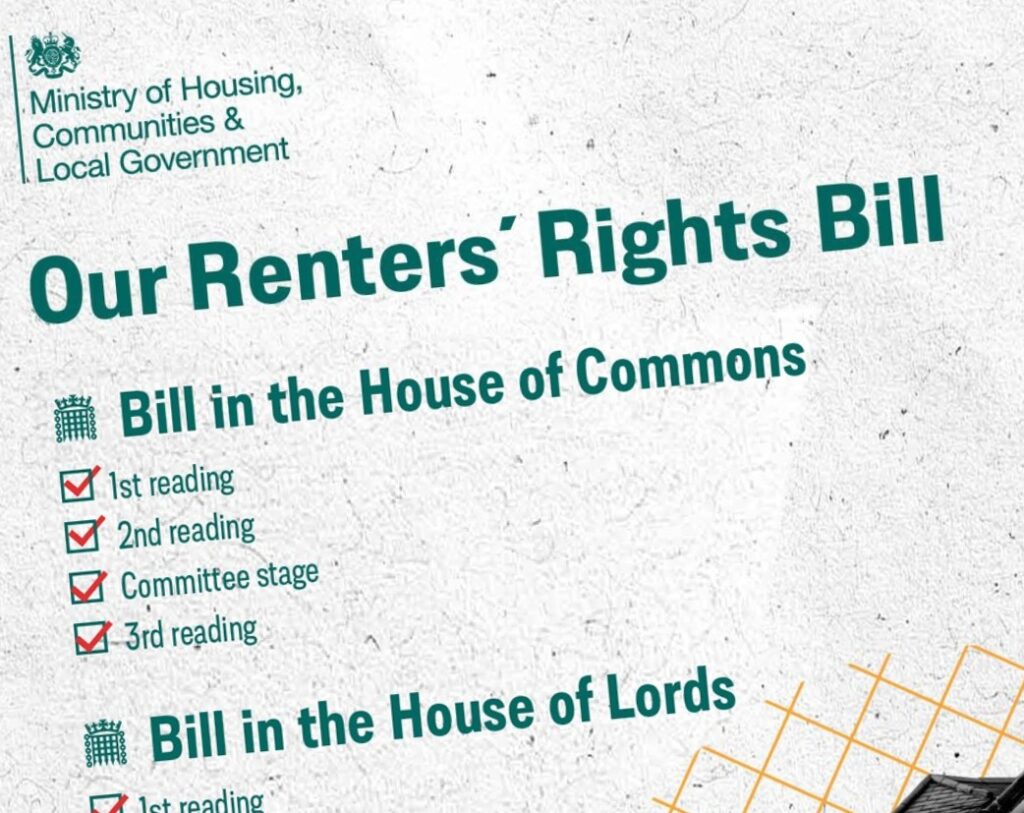The Renters’ Rights Bill is on the verge of becoming law, with Royal Assent expected before the party conference recess starts on 16th September, and implementation (the ‘Commencement Date’) set to follow in Spring 2026. As the detail of the reforms becomes clearer, we have set out our thoughts on what landlords need to know.
The wide-ranging reforms are set to reshape the landscape for the private rental sector in England, ending Section 21 evictions, changing tenancy structures, and introducing new compliance requirements. The bottom line is that there will be more that landlords (or their managing agents) need to do to remain compliant.
That said, it remains the case that in spite of the reforms the long-term prognosis for the rental market remains strong. And as long as landlords stay on top of the changes, they can continue to enjoy healthy rental returns.
What are the key reforms affecting landlords?
- Section 21 abolished.
The biggest change is the removal of Section 21, which currently allows landlords to evict tenants without giving a reason. For landlords, this will reduce flexibility but provide clearer legal boundaries.
- New grounds for possession under Section 8.
While Section 21 is ending, new mandatory and discretionary grounds will be introduced under Section 8 to reflect landlords’ needs to:
- Sell the property
- Move in themselves or allow a family member to move in
- Handle serious rent arrears (three instances of one month’s arrears in three years)
- Address persistent anti-social behaviour
Some grounds are strengthened to offset the removal of no-fault evictions, offering reassurance to compliant landlords.
- Restrictions on re-letting the property after regaining possession.
Landlords can evict tenants when they want to sell the property under Section 8. However, the Bill says that you can’t then change your mind and re-let the property for a ‘cooling off’ period of potentially up to 12 months.
- All tenancies become Periodic.
All fixed-term Assured Shorthold Tenancies (ASTs) (the current standard contracts) will be immediately replaced by rolling, periodic agreements, with no minimum term. Tenants will be able to give two months’ notice at any time, whilst Landlords will still need to follow formal processes to regain possession, even after a minimum term.
- Rent increases once a year.
Landlords will only be able to increase rent once per year and must give two months’ notice. The increase must be “fair market rate” and can be challenged by tenants via a Tribunal. The rent-bidding process – where tenants offer over the asking price – is also set to be banned.
- Tighter standards.
The bill introduces a Decent Homes Standard for all private rented properties. Local authorities will have more power to enforce property conditions, issue fines, and maintain a national landlord database. A new PRS Ombudsman will also handle tenant complaints, potentially without court involvement.
- Restrictions on discrimination.
Landlords will no longer be allowed to discriminate against tenants who receive benefits, have children, or request to keep pets. While landlords can still refuse pets for reasonable reasons, blanket bans will no longer be acceptable. Landlords must provide written reasons for refusals.
What stage is the Bill at?
The Bill passed its third reading in the House of Lords on 21st July and will return to the House of Commons in September to finalise the Lords’ amendments.
Royal Assent is expected by late September – in time for the government to announce it at the Labour Party conference which starts on 28th September
Best guesses of the ‘Commencement Date’ – i.e. when key measures will take effect – are between March and May 2026. Confirmation will come after Royal Assent.
What should Landlords do now?
The Renters Rights Bill changes will demand more structure, documentation, and responsiveness from landlords. Those who adapt early, understand and implement what’s needed to stay compliant, and maintain good tenant relationships will be well-placed to thrive in the new regulatory landscape.
We would say to landlords find a good, well-informed letting agent to help manage your rental through the reforms and ensure that you remain compliant.
For managed properties, our systems and process will be transitioned to comply fully with the new rules as soon as they are confirmed in law. This will include:
- Reviewing tenancy agreements to align with the shift to periodic tenancies.
- Confirming new eviction procedures to ensure compliance with new Section 8 grounds.
- Preparing rent review strategies based on fair market valuations.
- Preparing for compliance with decent homes and anti-discrimination standards.
- Staying up to date on tribunal processes and new Ombudsman powers.
For Let Only properties, we are as ever there to provide help and guidance.
Final thought…
There is no doubt that the Renters’ Rights Bill has a lot in it, and there will need to be some adjustment for landlords and their agents to be ready.
But, for all the noise around the impact of the Bill, the rental world will keep spinning, and good landlords with well-managed properties will continue to flourish.
Get in touch to discuss how we can support you in managing the transition.
